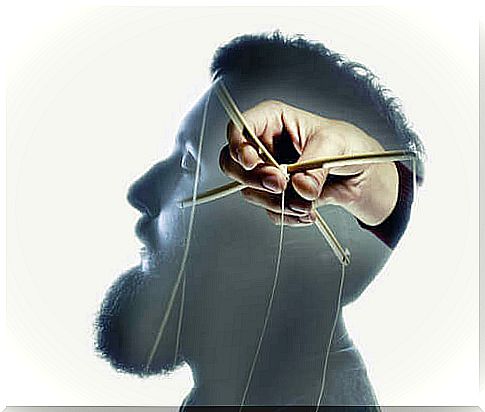Repeat A Lie A Thousand Times And It Will Become A Truth

Does a lie repeated a thousand times become a truth? It is more complicated than it may seem at first glance. What people admit as truth depends on many factors. There is a scientific truth, but also a philosophical, religious, personal, ideological, etc.
Not all of these “truths” have the same degree of truthfulness. In science, for example, something cannot be postulated as truthful if there is no physical or theoretical evidence to testify it. One thing happens in the philosophical field. However, this does not apply to other fields, such as ideology or religion, where a certain thing is believed to be true if an authority says it. It doesn’t matter if he can’t prove it.
Sometimes there isn’t much distance between an unproven truth and a lie. Nonetheless, many people don’t care. In fact, they are willing to believe something even against all evidence. This happens because, sometimes, the lie gives comfort, on the contrary, the restless truth. This is due to the fact that there are underlying fears or faults and to which the lie is usually easier to understand than the truth.
Reality opens a crack that many have exploited thoroughly. In many cases it is enough just to tell people what they want to hear, as we all want to believe the messages that please us, regardless of their parallelism with reality. But not only. In this way it is possible to establish a falsehood also on a cultural and social level. Likewise, many are willing to go to great lengths to keep a lie up. They do not realize, or do not want to see, that this does not benefit them, but those who direct them.
The power and the lie
Joseph Goebbels is credited with the phrase “Repeat a lie a hundred, a thousand, a million times and it will become a truth. ” There is no certain proof that he is the author, but it is certainly a good summary of what this propagandist did during the Second World War. His work was so effective that even today there are people who defend the “truths” of the Third Reich.

Goebbels was so successful in his work that he could claim that its mechanisms have been repeatedly copied by many leaders around the world. The sectors of power continue to make conscious use of the lie as a means of manipulating the minds of the people they want to influence and make them accept the unacceptable and follow the plans that follow the interest of a few.
The great sectors of power realized, thanks to the Nazi experience, that companies were able to believe any message if it was presented in an appropriate way. It was only necessary to exercise absolute control over the means of social communication and over all the institutions that transmitted an ideology, among them, the school. It was enough to dig into fears, anger, insecurities.
A lie repeated a thousand times
Repetition generates very deep convictions. When the brain picks up a new situation, there is an imbalance, which is followed by assimilation, an accommodation and then an adaptation. Like when we arrive in a city that we do not know and that initially makes us feel disoriented, but slowly, always seeing the same places, we begin to familiarize ourselves until we appropriate the new external environment. Let’s start making a kind of map starting from what we know.
A similar thing happens with the lie repeated several times. The mind gradually adapts to it by dint of hearing it and ends up incorporating it into its thought system. It becomes something familiar, known, what everyone says. In the case of the great lies of power, it is also the answer to fear and insecurity or the understandable explanation to what one ignores or fails to understand.

It is not strange that there is such a close relationship between power and the media. Traditionally, large economic or political groups have been in control of the press in almost all countries. Until recently, independent means were as rare as an exotic flower. With the advent of social networks, things have changed. Independent voices have multiplied and alternative sources of information have increased. However, social media has also come to elaborate lies of its own.
In other words, it does not matter through which medium a content is transmitted, but what is the intention for which it is narrated or commented. The most important element is the listener’s level of interest in what is true. “There is no worse blind than the one who does not want to see” goes the popular saying. And this always works in the terrain of truth and social lie.









